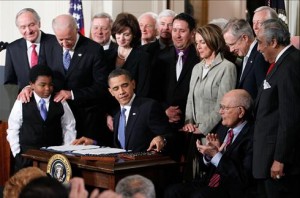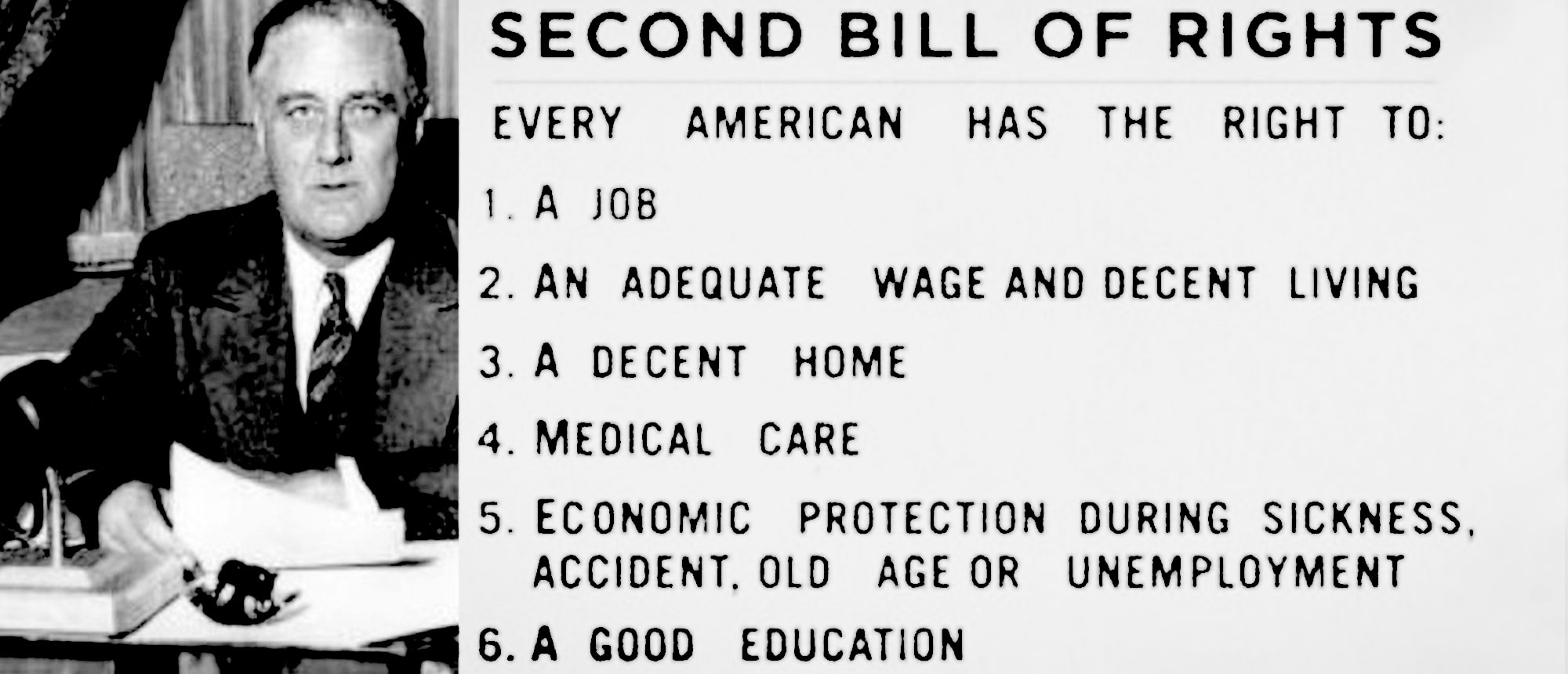(ThyBlackMan.com) In a historic vote, Democrats in Congress approved a plan to renovate the U.S. health care system.
Yesterday, the U.S. House of Representatives, led by Speaker of the House Nancy Pelosi, passed an enormous, politically daring overhaul of the American health insurance and health care delivery system by a margin of 219-212. President Barack Obama, expected to sign the bill into law later this week, rejoiced with a high-five. And yet in an address from the East Room of the White House, his sense of history overwhelmed his urge to celebrate. “Tonight we answered the call of history as so many generations of Americans have before us,” he said. “When faced with crisis, we did not shrink from our challenge–we overcame it. We did not avoid our responsibility–we embraced it. We did not fear our future–we shaped it.”
Former President Bill Clinton, whose own unsuccessful experience in trying to pass health care in 1993 has colored his commitment to the issue in Obama’s time, laid out the magnitude of the task that faced the  administration at the annual Gridiron Club dinner this past weekend. “There is nothing more difficult to carry out, nor more doubtful of success, nor more dangerous to handle, than to initiate a new order of things,” he said, citing Niccolo Machiavelli. Indeed, health care reformers in Washington have watched their dreams of making lasting social change go down to defeat during presidency after presidency since Theodore Roosevelt.
administration at the annual Gridiron Club dinner this past weekend. “There is nothing more difficult to carry out, nor more doubtful of success, nor more dangerous to handle, than to initiate a new order of things,” he said, citing Niccolo Machiavelli. Indeed, health care reformers in Washington have watched their dreams of making lasting social change go down to defeat during presidency after presidency since Theodore Roosevelt.
With this historic legislation, Democrats in Congress effectively brushed off the heat of conservative opposition (no Republican cast a vote for the bill), a sustained lobbying effort from private insurers and other health industry interests, and their own fears that “the new order” might cost them their jobs this November.
What Reform Means
The final bill, which focuses on controlling the health care costs that threaten the nation’s long-term fiscal health, will cover an additional 32 million Americans who do not currently have health care, and amount to $1.2 trillion in deficit reduction, according to the most recent score from the independent Congressional Budget Office–which also estimates that insurance premiums will fall by an average of 14 percent.
It is also what Obama calls “a patient’s bill of rights on steroids.” The bill will establish a set of market exchanges from which individuals and small businesses alike can buy insurance for themselves or employees–with the purchasing power of a larger pool behind them. These same businesses and families will receive tax breaks and subsidies up to a certain level of income for the cost of buying this insurance–now required by law. While progressives wanted a “public option” to provide direct competition with insurers, and Republicans argued that reform would amount to a “socialization” of American government, the bill’s supporters emphasized the choice and compromise it offers–including many tax breaks and Republican-endorsed provisions.
The bill comes with a number of structural reforms to the health insurance industry and health care delivery system that supporters claim will restore fairness and competence to a broken system. Among the consumer protections: Immediate access to insurance for those previously denied due to pre-existing conditions; no lifetime caps on coverage for individuals with chronic and expensive costs; and a prohibition on dropped coverage when individuals with insurance get sick. In addition, families can keep children on insurance until they are 26 years old; Medicare eligibility will be expanded, and Medicaid will be subsidized to cover 15 million more Americans living in poverty. The bill also aims to train more doctors and nurses, make medical records electronic, and strengthen incentives for preventative care. While some of these provisions will not take full effect until 2014 or 2018, many will happen within 90 days after the bill is signed.
How a Deal Was Made
Obama put a lot on the line in the name of these reforms. He seemed to feel the weight of history more than ever in the weeks since a destabilizing Democratic Senate seat loss in Massachusetts in January threatened to destroy reform efforts and permanently weaken his presidency. In private meetings and phone calls with 64 congressional lawmakers, and at town halls from Ohio to Virginia, he pleaded for them to have the courage to pass what has become the signature issue of his tenure in office. During an 11th-hour speech to the entire Democratic caucus on Saturday, he referenced earlier generations’ passage of Medicare and Medicaid, the Social Security Act of 1935, and the civil rights legislation Lyndon B. Johnson wrung out of his Congress in the 1960s. Echoing the sentiment on Sunday night, James Clyburn of South Carolina, House Majority Whip, called the bill “the Civil Rights Act of the 21st century.”
Living up to that history didn’t come easily–the Democratic caucus spent the weekend in a flurry of last-minute negotiations. In order to win the votes of a holdout group of seven anti-abortion Democrats led by Rep. Bart Stupak of Michigan, President Obama promised to issue a rare, official executive order “ensuring enforcement and implementation of abortion restrictions” in the bill. By the time of the vote, concluded just before midnight Sunday, the House of Representatives had consented to a parliamentary maneuver that would pass the bill approved by the Senate in December, and an additional bundle of changes that the Senate would also take up.
Obama acknowledged that the bill is not perfect, with respect to policy or politics. “This legislation will not fix everything that ails our health care system,” Obama said from the East Room. “But it moves us decisively in the right direction. This is what change looks like.”
Congressional Black Caucus chairwoman Barbara Lee tied the bill’s passage to the unique health disparities that affect black America: “To those who suffer from those health disparities, our vote tonight carries significance similar to the passage of the Civil Rights Act in that it fulfills a dream that has been elusive for far too long and for far too many Americans.”
What Happens Now
Historical significance aside, Democrats are betting that the bill will be defensible on political grounds come the midterm elections this fall. Republicans have gone all-in in the opposite direction. Republican Strategist Karl Rove made a prediction hours before the final vote: “We will fight the election on this, and the Democrats will have significant losses in the House and Senate as a result of this bill.” That outcome remains to be seen, especially since it forces Republicans to run on repealing benefits that Americans have.
Still, the highly contentious town hall meetings and an anti-health care “tea party” rallies this weekend, which produced racist and inflammatory remarks lobbed at Democratic supporters of health care reform, including civil rights pioneer John Lewis, show that there will be a pitched battle all the way until Election Day 2010–and perhaps beyond.
Written By Dayo Olopade




















It’s wrong to think that one person has a ‘right’ or is entitled to someone else labor. Charity and support should be voluntary, not forced.